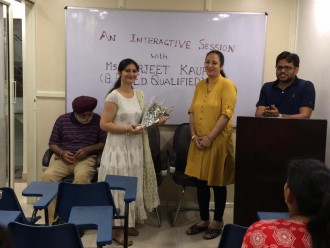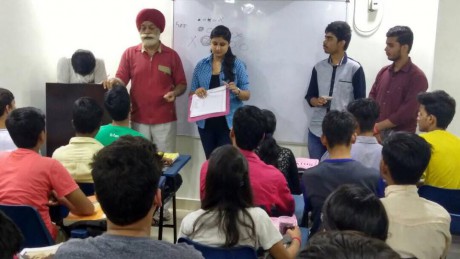LEET Eligibility Criteria
Those candidates who pass a Three-year Diploma degree in Engineering along with conditions mentioned below:-
- Candidates have to secure a minimum of 60% marks or equivalent CGPA in Engineering Diploma Degree.
- Applicants from the Reserve category (SC/ST) should score a minimum of 50 to 55% in their examination
- Applicants who are above the age of 18 and below the age of 26 are eligible for the entrance exam.
- Candidates who have Back & Supplementary in Diploma can also apply for lateral entry in DTU, but they have to clear all the supplementary/back till the time of admission.
- In the case of candidates allotted grade awarded in terms of CGPA, then they can calculate their percentage= 10* CGPA.
- Applicants who have completed their diploma course from a known university which is located in Delhi will be eligible for the Delhi region only.
- Whereas applicants who have completed their diploma course from a known university located in another place than Delhi are eligible for outside the Delhi region only
LEET Exam Pattern
Candidates can go through the information related to the paper pattern for the entrance exam below:
- The entrance exam is conducted in both offline mode (pen-paper-based) as well as online mode. Authority will provide two hours to the applicants for completing the entire paper.
- University will not give any extra time to the applicants for completing the paper.
- Fours marks will be granted for each right answer
- One mark will be deducted for each incorrect answer
- Once the exam is over, a merit list will be prepared by the university on the basis of the grades scored by the applicants in the entrance exam.
DTU LEET Syllabus
The syllabus for DTU B.Tech Lateral Entry Admission is mentioned below, to know the detailed syllabus check the previous year's information brochure.
Mathematics
Number theory, Sets, and functions, Basic of algebra, Matrices, and determinants, Coordinate geometry, arithmetic,Trigonometry, Mathematical reasoning, Statistics and probability, limits, derivatives, integrals, vectors.
Physics
Units and Measurement, Kinematics, Law of Motion, Force, Work, Energy and Power, The motion of System of Particles, Gravitation, Properties of bulk matters, Thermodynamics, Kinetic theory of gases, Oscillations and Waves, Electrostatics, Current and Electricity, Magnetism, Optics, Nuclear physics
Chemistry
Basic concepts of Chemistry, Chemical bonding and molecular structure, States of matter Chemical thermodynamics, Structure of Atom, Classification of elements, Equilibrium, Redox Reaction, Hydrogen,Hydrocarbon, solid, State, Solutions, Electrochemistry, Chemical kinetics, Organic compound and structures, polymers
The syllabus for IPU CET Lateral Entry Examination conducted by Guru Gobind SinghIndraprastha University for admission in B Tech Program is as follows:
- Mathematics : Sets, relations and functions, Trigonometry, Statistics and probability, Co-ordinate geometry, Vector algebra, Three dimensional geometry, Binomial theorem and its simple applications, Differential equations, Complex numbers and quadratic equations, Matrices and determinants, Mathematical reasoning, Mathematical induction, Permutations and combinations, Integral calculus, Sequences and series, Lbw, continuity and differentiability
- Physics : Physics and measurement, Kinematics, Thermodynamics, Work, energy and power, Atoms and nuclei,Electrostatics, Dual nature of matter and radiation, Optics, Electromagnetic waves, lectromagnetic induction and alternating currents, Magnetic effects of current and magnetism, Current electricity, Rotational motion, Communication systems, Oscillations and waves, Kinetic theory of gases, Electronic devices, Properties of solids and liquids, Laws of motion, Gravitation
Chemistry :
- Physical Chemistry:Some basic concepts in chemistry, States of matter, Atomic structure, Chemical bonding and molecular structure, Chemical thermodynamics, Solutions, Equilibrium Redox reactions and electrochemistry, Chemical kinetics, Surface chemistry
- Organic Chemistry: Purification and characterisation of organic compounds, Hydrocarbons Chemistry in everyday life, Principles related to practical chemistry, Organic compounds containing halogens, Organic compounds containing oxygen, Organic compounds containing nitrogen Polymers, Some basic principles of organic chemistry Biomolecules
- Inorganic Chemistry: Classification of elements and periodicity in properties Hydrogen s-Block elements (alkali and alkaline earth metals) p- Block elements group 13 to group 18 elements D - and f - block elements Coordination compounds Environmental chemistry General principles and processes of isolation of metals












